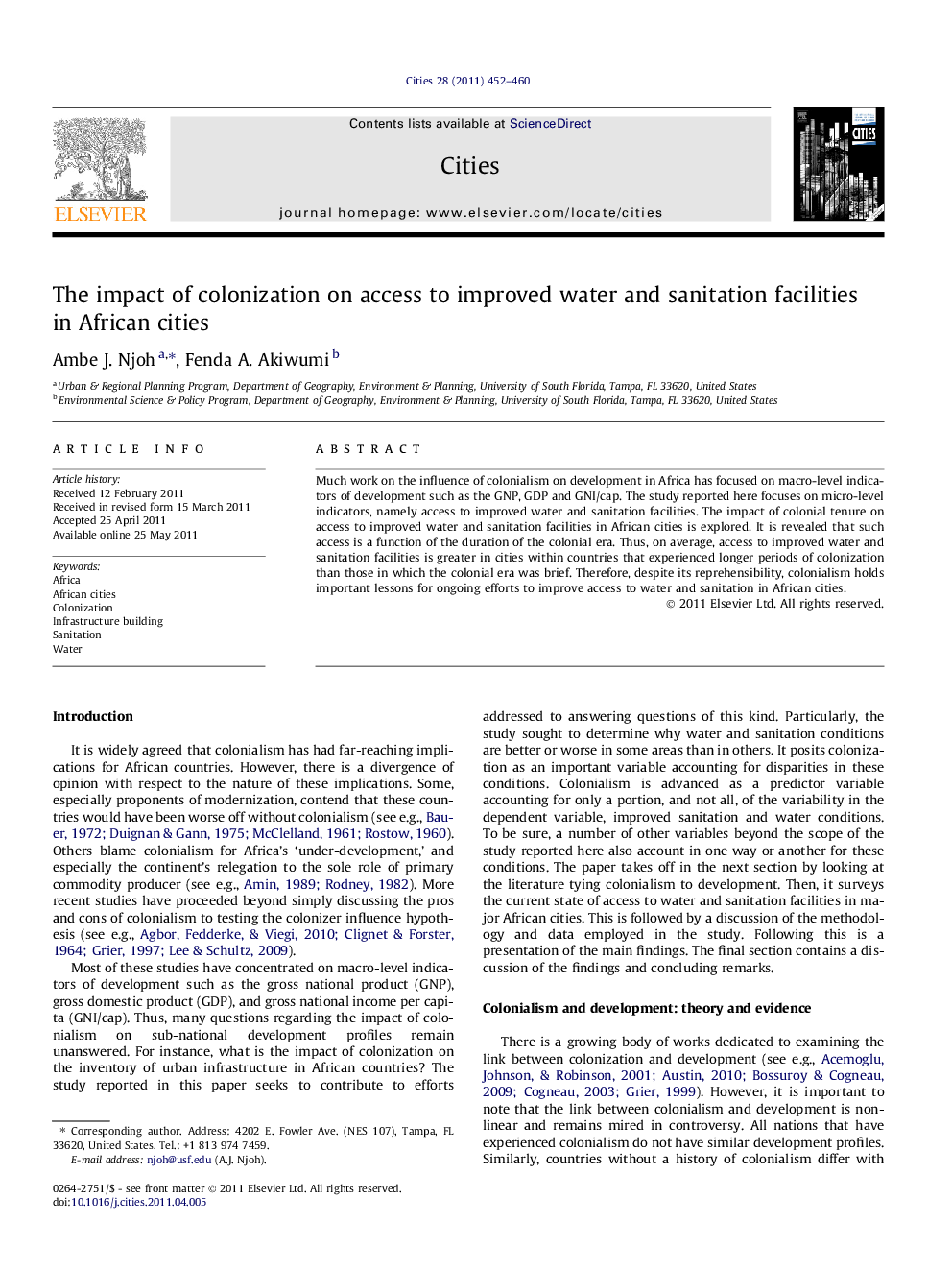| Article ID | Journal | Published Year | Pages | File Type |
|---|---|---|---|---|
| 1008693 | Cities | 2011 | 9 Pages |
Much work on the influence of colonialism on development in Africa has focused on macro-level indicators of development such as the GNP, GDP and GNI/cap. The study reported here focuses on micro-level indicators, namely access to improved water and sanitation facilities. The impact of colonial tenure on access to improved water and sanitation facilities in African cities is explored. It is revealed that such access is a function of the duration of the colonial era. Thus, on average, access to improved water and sanitation facilities is greater in cities within countries that experienced longer periods of colonization than those in which the colonial era was brief. Therefore, despite its reprehensibility, colonialism holds important lessons for ongoing efforts to improve access to water and sanitation in African cities.
► Access to improved water and sanitation is modeled as a function of the duration of the colonial era in any given country. ► The hypothesis of a positive relationship between the variables is confirmed. ► Access is greater in Cities in countries that experienced longer periods of colonialism than those in which the colonial period was brief. ► Thus, despite its reprehensibility, colonialism holds important lessons for ongoing efforts to improve access to water and sanitation in African cities.
